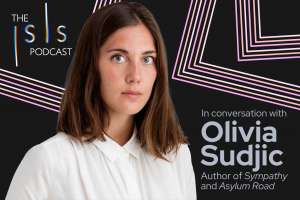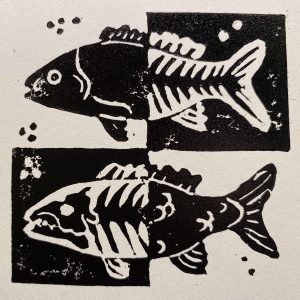
Grass Island
by Izzy Tod | August 11, 2020
Guernsey was built to be on a postcard. Sand crocuses and sea thrift flowers carpet its long coastal dunes; thatched stone cottages with open shutters bask in its continental sun; yellow and pink bunting canopies its narrow, cobbled streets. It is a polite place. Road signs instruct vehicles to ‘take turns’ at junctions and ‘hedge veg’ is sold on the side of the road – paid for by passers-by with an honesty box. A paradise island fit for retired birdwatchers, clifftop ramblers – and cannabis kingpins.
For the last hundred years, Guernsey’s horticultural tradition has revolved around one thing: the tomato. In the 1960s, the Guernsey Tomato Marketing Board co-operative was producing fifty thousand tonnes of tomatoes every season (roughly a tonne of tomatoes per inhabitant) and providing sixty percent of the tomatoes sold in UK supermarkets. At the industry’s peak, over seven percent of the island’s total surface was covered by greenhouses and dedicated tomato trains had to be set up from Southampton and Weymouth in order to keep up with the hordes of boats travelling across the channel piled high with Guernsey Toms. By the late 1960s, Guernsey had achieved a tomato monopoly.
But the dream couldn’t last forever. Once the UK joined the Common Market in the 1970s, tariff barriers for European growers were removed and Dutch farmers were able to sell their tomatoes in the UK at lower rates. All the while, the Guernsey growers refused to adapt to the emerging agricultural technologies and by 1997, their tomatoes made up only 0.7% of those on supermarket shelves in the UK. For the first time in the island’s history, it had become a net-importer of tomatoes.
Now all that’s left are the greenhouses. Shrouded by huge sheets of brambles and ivy with gaps like knocked-out teeth where window panes should be. The air hanging over the empty shells is thick and still; these are the tombs of the Guernsey Toms.
But out of the ashes of Guernsey’s first horticultural boom rises its second…
The European cannabis industry is set to be worth up to €123 billion by 2028. From prescription medications to CBD oils to hemp-flavoured lip balms, the demand for legal cannabis products has never been higher. And if Chris Callaghan, Chief Science Officer at Jersey Hemp, is correct in his estimations, Guernsey alone could be set to take a 1-5% share of this market.
It all began with one woman: Tina Bolding. Described by the Daily Mail as “more yummy mummy than weed farmer,” Tina is an enormously successful entrepreneur, believed to be the first ever female cannabis farmer in the British Isles. After the heartbreak of her husband’s death from lung cancer in 2016, Tina began to take an interest in cannabis products, believing that they might have alleviated some of his pain towards the end of his life. Two years on, having successfully lobbied the Guernsey government to allow regulated CBD products to be sold, she opened her shop The Original Alternative. In 2019, she obtained a growers license which permitted her to set up a cannabis farm in a disused greenhouse on the island. This was to become the first (legal) non-pharmaceutical cannabis operation to open in the British Isles, capable of producing 5 million grams of cannabis every year. She has established a self-sufficient cannabis ecosystem on Guernsey, whereby the plant is able to be grown, manufactured, and sold without ever leaving the island.
For Tina, the decision to set up a cannabis business on Guernsey was closely tied to her admiration of the island’s agricultural history. She told me that the people of Guernsey “are very proud of our heritage, to be able to revive it in such a pioneering way is fantastic.” Whilst she acknowledges that there are still “further barriers to break down to get people the products that they truly need,” she has a vision of Guernsey as a “health haven” providing “quality healthcare” with CBD treatments in a place that people can “turn to and trust.”
Drawing a comparison to the situation in the UK, Tina praises the “balanced approach” taken by the Guernsey government, which she considers to be “a lot less ambiguous than the law as it stands in the UK,” which she calls “unenforceable.” In Guernsey, the current legislation allows 3% THC (the chemical that makes you high) content in CBD oils; in the UK, the law stands at only 0.2%. This huge difference between the two nations is permitted as a result of Guernsey’s status as a British Crown Dependency: no UK government dares risk the constitutional crisis that policy intervention would provoke and so Guernsey is able to carry out, quasi-independently, progressive legislation such as this.
Guernsey and the UK could not be more different in their responses to the emerging medicinal cannabis industry. In the UK, the legal cannabis scene is ruled over by corporate giants GM Pharmaceuticals. Since 1998, the UK has been profiting off the exportation of their cannabis-derived medicines in an operation so huge that the UK is considered by the UN to be the world’s largest exporter of cannabis. And this was long before the 2018 legislation allowing medicinal cannabis to be prescribed to patients in the UK. To top it off, then Drugs Minister Victoria Atkins was married to the managing director of British Sugar (greenhouse facilities provider for GM Pharmaceuticals), and the organisation’s largest share-holder, The Capital Group, employs the former Prime Minister’s husband, Philip May. The hypocrisy is rife. The UK government consistently denied the medicinal properties of cannabis in order to block patients from receiving treatment, whilst at the same time making huge profits from the pharmaceutical cannabis industry overseas.
It therefore comes as no surprise that cannabis growers are staying clear of the murky waters of the UK market and flocking to Guernsey: where not only is the warmer climate more conducive to the crop, the government is more open to the industry. In its cannabis licensing guide, the Guernsey government calls the sector “the next modern advancement of the islands’ growing industry” with the potential to “grow Guernsey’s economy and re-affirm that the island is open for business.” In the UK, only twelve licenses to grow cannabis have ever been awarded, with each individual license requiring approval from the Home Office. In Guernsey, however, there is a well-established and accessible licensing pathway for potential growers that is free from the UK’s needless bureaucratic hurdles.
Tina’s pioneering work in the Guernsey cannabis industry has paved the way for other like-minded individuals to follow suit. Next to the scene is The House of Green, a vertically established soil to oil CBD facility that is currently being set up on the island. The company uses a patented process to extract cannabinoids and terpenes from the cannabis plant, manufacturing CBD oils to be sold across Europe and in the UK. The crop is currently being grown in a disused vinery on the island and is processed in the company’s £2m manufacturing facility. With industry experts relocating from the USA to head the company, The House of Green is bringing the Guernsey cannabis industry to the international stage.
I spoke with Paul Smith, CEO of the House of Green, who told me of his ambition to “re-energise [Guernsey’s] horticultural heritage” by repurposing pre-existing infrastructure and drawing on the years of expertise in the local workforce. Paul explained his intention to involve independent growers in the business by establishing a growers’ co-operative; local farmers would grow cannabis in their own greenhouses and The House of Green would act as an “on-island market for their crop” and a hub of “expertise and information.” By setting up a collectivised system of cannabis cultivation, Paul believes The House of Green will be able to “truly re-establish the horticultural sector and hark back to the days of the Guernsey Tomato Marketing Board.”
Paradoxically, central to The House of Green’s ethos is increased regulation regarding cannabidiol manufacturing. Paul expressed concern over “the quality of some of the so-called CBD products available on the market,” which he considered to be “appalling.” Without sufficient regulation, these knock-off CBD oils are being sold cheaply all over the world, making it increasingly difficult for legitimate businesses to infiltrate the market. In the UK, for example, lab tests from the Centre for Medicinal Cannabis in 2019 found that sixty-two percent of UK high street products didn’t contain the CBD content promised on the label. In response to this, Paul welcomes “tighter controls and regulation that will rid the industry of these products.” He hopes that Guernsey will be a world-leader in CBD regulation, curating a reputation for the island as a “leading jurisdiction in setting the standards for the cannabis industry that others will have to follow” by offering the “highest standards of regulation along with a top-quality product.”
With a third of its population over the age of 55, Guernsey’s demographic is a far cry from state-sponsored cannabis farming. However, Tina’s launch back in 2019 was met with little to no public resistance – aside from a few grievances over the high fences and CCTV cameras that were to be installed around the greenhouse. She admits that there “were and still are a couple of Deputies (MPs) opposed,” but that they were “highly outnumbered” by outcries of support from what Tina praises as Guernsey’s “truly progressive community.” The same held true for Paul, who told me that feedback was “overwhelmingly positive” since “it has long been a huge sadness to islanders to see the vineries falling into various states of disrepair.” What could have easily become a polarising issue for residents turned out to be a means by which they could reconnect to each other and to their surroundings. From the outside, the island may look like a pocket of quintessential rural Brittania, but this is far from the truth; by embracing its new industry, the residents of Guernsey are dismantling the ‘traditional’ and ‘liberal’ binarism, proving that both value systems are enriched through interplay with the other.
In Guernsey, legal cannabis cultivation is more than just a corporate money-making strategy: it is an opportunity to lift up the whole community by raising employment levels, repurposing infrastructure, and pumping life back into an old tradition. In this way, the industry is able to benefit the public at large rather than line the pockets of a select few. The island is sending an urgent message to the UK: cannabis cultivation can be carried out without the alienation of older generations, social stigma, or political hypocrisy.
Guernsey’s growing tradition is about so much more than the crops inside its greenhouses; it is about choosing community over individuality, unpredictability over uniformity, and creation over disintegration. The Guernsey cannabis farmers are proving that we can learn from the past without conceding to it and look towards the future by building on what has come before.
Words by Izzy Tod. Art by Sasha LâCombe.




